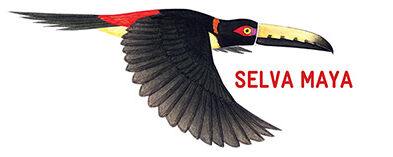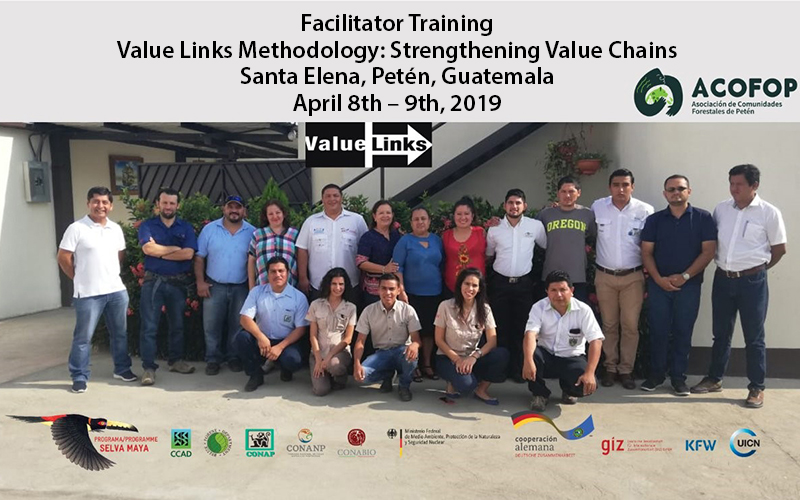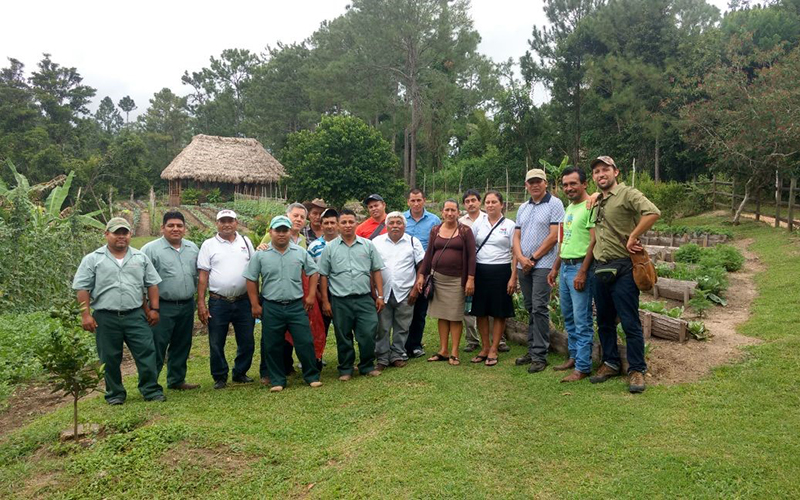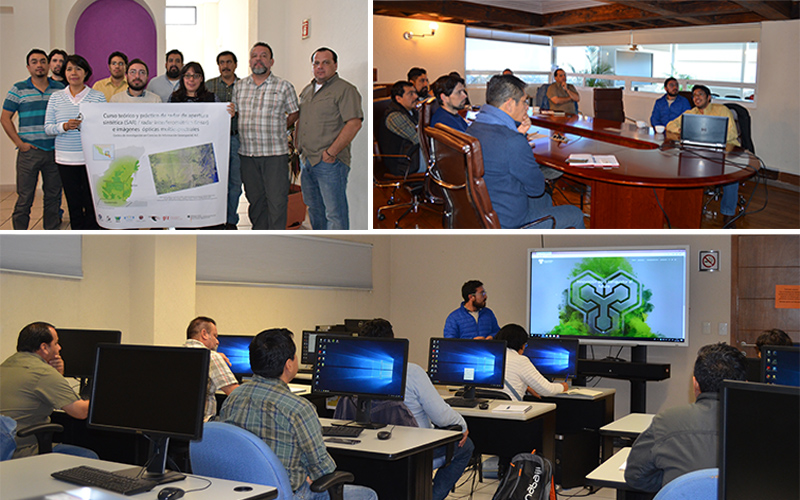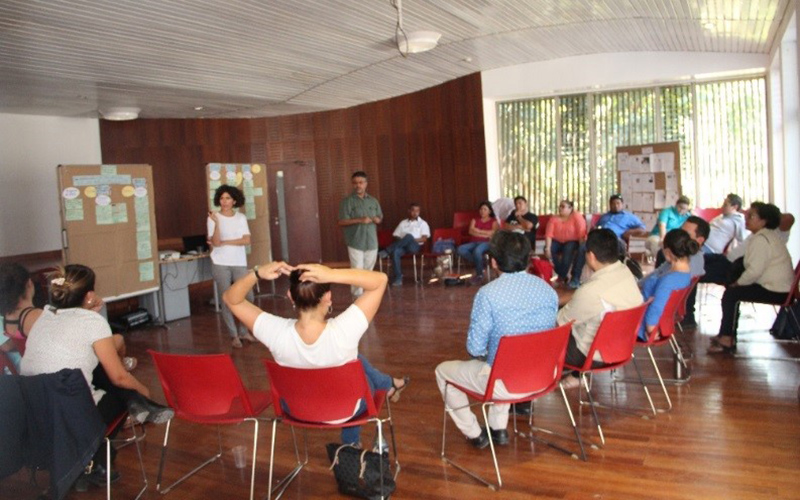As part of the Project Protection and Sustainable Use of the Selva Maya, specifically in the component Sustainable Alternatives for income generation, the German Cooperation / GIZ collaborates with partner institutions in the development and strenthening of various agricultural production alternatives in the buffer zones of the Mayan Biosphere Reserve in Guatemala and protected areas of Belize.
With the aim of enriching the experience and knowledge and to be able to strengthen the work in the communities, a delegation participated in a training on silvopastoral systems and visited different agroecological experiences in Cuba, between April 29 to May 10. The delegation consisted of representatives of the Guatemalan Ministry of Agriculture, Livestock and Nutrition (MAGA), Pastoral Social of the Apostolic Vicariate of Peten, the Municipality of Flores and a technical advisor from Belize.
During the tour, participants learnt from the Cuban experience in the development of agroecological models in different production and social setting. Institutional, family, cooperative and commercial experiences were visited. During the first week, the activities consisted of a training in silvopastoral systems at the Indio Hatuey Pastures and Forages Experimental Station. During the second week, visits were carried out to exapmples of agroforestry systems, biointensive production of vegetables, sustainable livestock production, production of fertilizers and organic supplies; all models visited are characterized by the high level of integration, self-sustainability and appropriate technologies for the development of small and medium-sized agriculture.
In the opinion of the institutions involved, the objective of visualizing concrete proposals to be applied in the Selva Maya region was achieved, such as silvopastoral systems of rapid transition and easy and simple agroecological technologies and practices to be adopted by the groups and families in the area.
